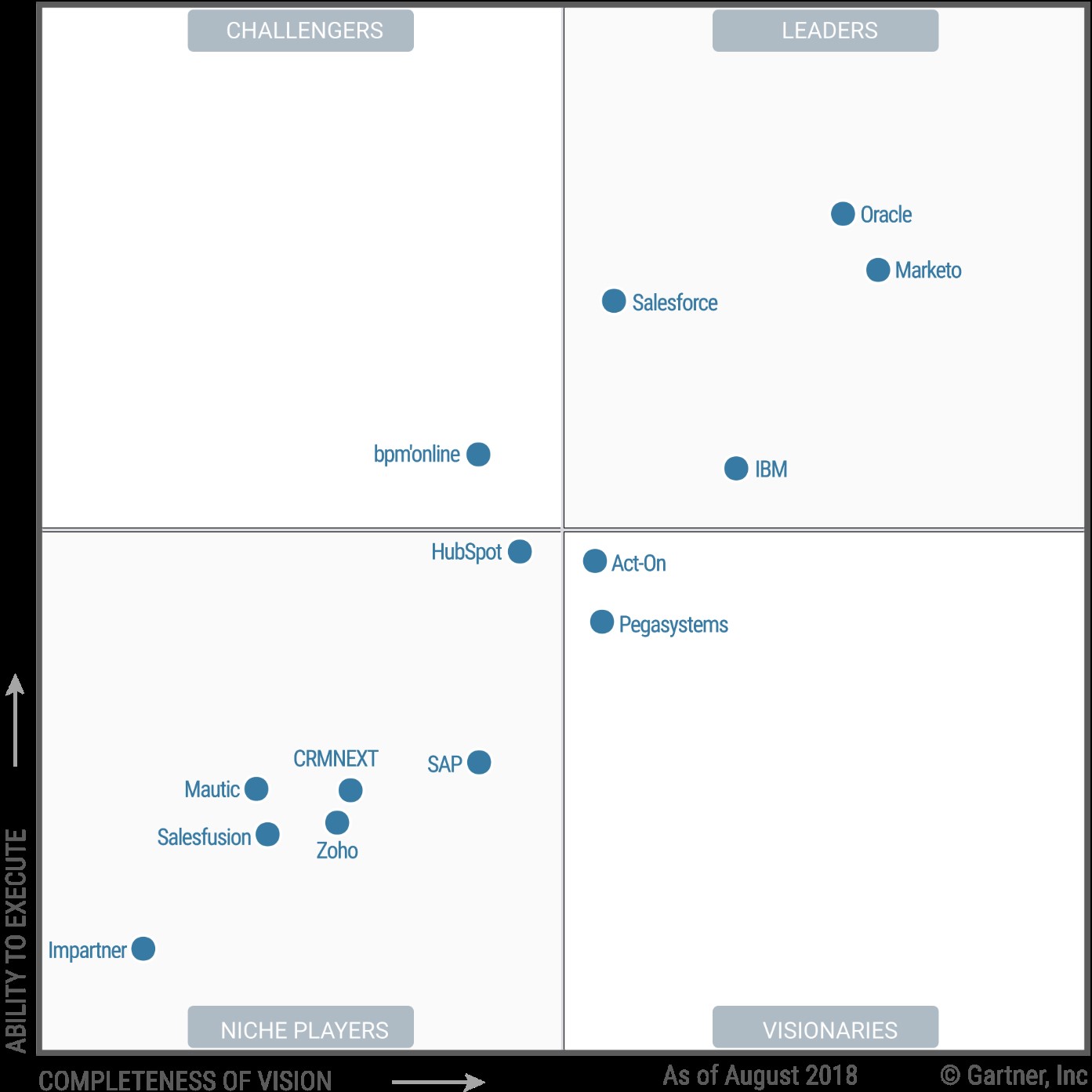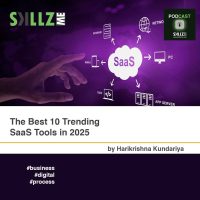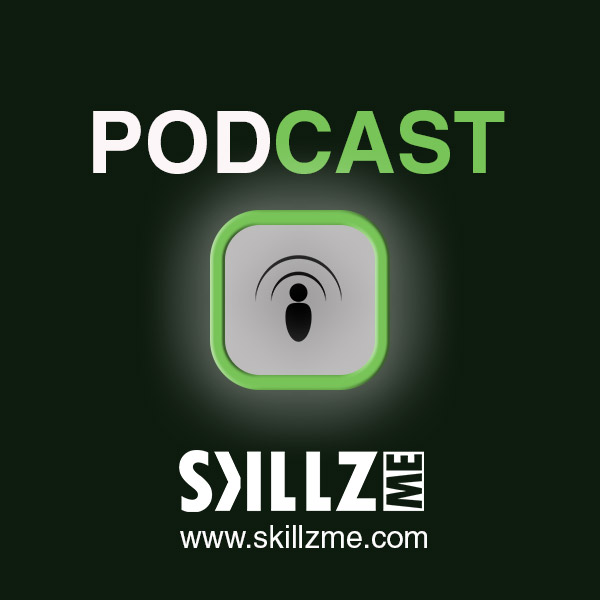Back in 2017 the CRM market for lead management applications grown with more than 17%. Successful organizations know how to tackle and track their customer relationships and how to overcome the challenge in their sales pipeline.
Vendors for CRM lead management software are improving their tools be using state of the art technologies seen across the complete software industry. Reading the GARTNER report from September 2018 states it clearly.
“Vendors have reacted to these demands by providing multichannel lead management capabilities, and focusing on AI for scoring and nurturing.” – states Gartner in their introduction of the report.
The hassle maybe a lot of organizations face is the fact that CRM capabilities can be found across a lot of marketing automation tools, in ERP systems or other business software. But the reality is that only CRM lead management applications make a 360-degree view of your potential customer visible.
CRM lead management is the process of capturing leads, tracking their activities and behavior, qualifying them, giving them constant attention to make them sales-ready, and then passing them on to the sales team.
The fundamental goal of CRM lead management applications is to deliver engaged contacts to sales precisely when they are likely to be seeking to purchase a solution — in other words, giving sales higher-value, qualified opportunities at exactly the right time.
Reading through the Gartner report we can learn that CRM solution can extend their organizational reach with functions of SFA, multichannel marketing hub (MMH) and partner relationship management (PRM) applications as well.
Gartner names new and emerging functions which have been discovered:
- Support for customer journey mapping
- Support for inside sales
- Account-based marketing (ABM) features
- Application of predictive analytics and further use of AI and machine learning to increase the effectiveness of lead management processes and analytics
In 2018 Gartner evaluated 12 vendors on the market and summarized the findings in the report. A newcomer in the Gartner Quadrant is Mautic.
Summary of the Magic Quadrant
- For the second successive year, we have omitted Adobe and Microsoft. While Adobe continues to sell Adobe Campaign to both B2B and B2C marketers for cross-channel campaign management and email marketing, it has not been actively selling the separate lead management module in the application (it delisted the SKU in March 2017). Microsoft offered lead management through Dynamics Marketing, which has been retired. The new Dynamics 365 for Marketing application includes some lead management functionality but was announced recently, which made it impossible to assess the product functionalities in depth within the process deadlines for this year’s Magic Quadrant.
- Salesforce moved this year from the Challengers to the Leaders quadrant. This was based on a higher Completeness of Vision score due to it improving product development, marketing understanding, and sales strategy.
- Pegasystems moved from the Niche Players to the Visionaries quadrant. This was based on an increased Completeness of Vision score. Pegasystems has not provided customer references and was assessed through Gartner customer feedback and Peer Insights.
- HubSpot did not provide supplemental information for this Magic Quadrant. Gartner’s analysis is therefore based on other credible sources, including publicly available information and insight gained from client inquiries.
Figure 1. Magic Quadrant for CRM Lead Management
Source: Gartner (September 2018)
As Adobe partner Skillz Middle East is focusing from the beginning to offer Adobe Marketing Cloud offering in the Middle East. Adobe Campaign is one of the best cross-platform offerings on the market which is shining with their point-to-point analytics capabilities. As mention from Gartner, it is not recognized in the CRM lead management market.
See the Youtube Video explaining Adobe Campaign.
Fair to say that Adobe acquired Marketo in 2018 which strengthen their market offering in totality.
Marketo (an Adobe Company)
Marketo remains a Leader this year on the strength of its overall platform, focus on ABM and product roadmap. It also has a strong presence with B2B organizations, which represent the majority of its customer base. Marketo is a specialist that develops SaaS-based marketing automation software to provide inbound marketing, lead management, ABM, social marketing, event management, and marketing ROI reporting and analytics. The vendor has acquired Bizible, a multitouch attribution software provider, this year to bolster its capabilities in this area. Many intent data providers, including sales acceleration software vendors and sales enablement software providers, have integrated native API connectors to Marketo. Midsize-to-enterprise B2B businesses — particularly those in the high-tech, IT and business service industries — remain Marketo’s core focus. A minority of its customers come from high-consideration B2C verticals, such as automotive, education, financial services, and insurance. Marketo is based in San Mateo, California, U.S.
Strengths
- Product strategy: Native Marketo Engagement Platform modules provide multiple channel-specific delivery capabilities, augmented by a large catalog of partner solutions. The vendor incorporates predictive analytics for marketing program and channel insights as well as customer journey analysis. The addition of AI-powered predictive content enables real-time personalization, including dynamic email and mobile marketing offers.
- Cross-functional vision: Through its 2017 acquisition of ToutApp, Marketo has focused on developing capabilities that keep marketing and sales organizations aligned across the customer buying journey. This response to a common pain point of B2B companies of all sizes, but is particularly relevant to larger, more-distributed organizations. Reference customers gave the company above-average scores for its lead management vision and product roadmap.
- Robust features: Marketo Engagement Platform got positive feedback for its robust feature set and overall ease of use, with reference customers citing lead management and email marketing capabilities as strengths. They also noted solid integration capabilities with other applications.
Cautions
- Predictive and lead scoring capabilities: Reference customers gave Marketo below-average scores for its predictive capabilities (account segmentation, prospecting, lead scoring and lead nurturing) and its lead scoring capabilities. Prospect marketers should evaluate Marketo’s native lead scoring capabilities against their requirements and assess whether to use one of the company’s integrated third-party partners.
- Reporting: Marketo received below-average scores from reference customers for the application’s reporting and analytics. It continues to focus on this area, and the Bizible acquisition will bring additional functionality around attribution modeling, journey analytics and ROI modeling — areas where many marketers have struggled to gain traction.
- Customer experience: Reference customers rated Marketo’s sales and contract negotiation process below average. Pricing terms and total cost of ownership also received below-average scores, reflecting rising costs.
Summary of the Report
Besides the newcomer
SAP is moving forward with a couple of acquisition to complete their offerings. SAP Hybris is seen by many organizations as one of the best e-commerce offerings. However, SAP struggles to deliver an easy message to the market and is more successful to be seen as marketing automation offering than a lead management platform. This might change with SAP HANA.
Acronym Key and Glossary Terms
| ABM | account-based marketing |
| AI | artificial intelligence |
| BI | business intelligence |
| BPM | business process management |
| CRM | customer relationship management |
| IoT | Internet of Things |
| KPI | key performance indicator |
| PRM | partner relationship management |
| SFA | sales force automation |
| SI | system integrator |
| SMB | |
| WCM | web content management |
Note 1: Definition of Marketing Automation
A segment of CRM, marketing automation, as defined by Gartner, is a general term for several types of marketing functionality:
- Analytics for CRM
- CRM lead management
- Multichannel campaign management
- Marketing resource management
Note 2: Difference Between Marketing Automation (B2C) and Lead Management (B2B)
B2B lead generation caters to business enterprises and corporations; B2C lead generation caters to individual consumers. Though many people might think that enterprises are also consumers — because they are in essence made up of individual people who make the decisions — these types of lead generation approaches differ wildly in their tactics. As customers, both have slightly different requirements when it comes to building a relationship with brands.
© 2018 Gartner, Inc. and/or its affiliates. All rights reserved. Gartner is a registered trademark of Gartner, Inc. and its affiliates. This publication may not be reproduced or distributed in any form without Gartner’s prior written permission. It consists of the opinions of Gartner’s research organization, which should not be construed as statements of fact. While the information contained in this publication has been obtained from sources believed to be reliable, Gartner disclaims all warranties as to the accuracy, completeness or adequacy of such information. Although Gartner research may address legal and financial issues, Gartner does not provide legal or investment advice and its research should not be construed or used as such. Your access and use of this publication are governed by Gartner’s Usage Policy. Gartner prides itself on its reputation for independence and objectivity. Its research is produced independently by its research organization without input or influence from any third party. For further information, see “Guiding Principles on Independence and Objectivity.”


![10 Common Performance Testing Mistakes and How to Avoid Them [Infographic] 10 Common Performance Testing Mistakes and How to Avoid Them](https://www.skillzme.com/wp-content/uploads/2025/02/hero-image-performance-testing-200x200.jpg)
![5 Bold Predictions for AI in 2025 [Infographic] hero-image-AI-Predictions-2025](https://www.skillzme.com/wp-content/uploads/2025/02/hero-image-AI-Predictions-2025-200x200.jpg)



Recent Comments